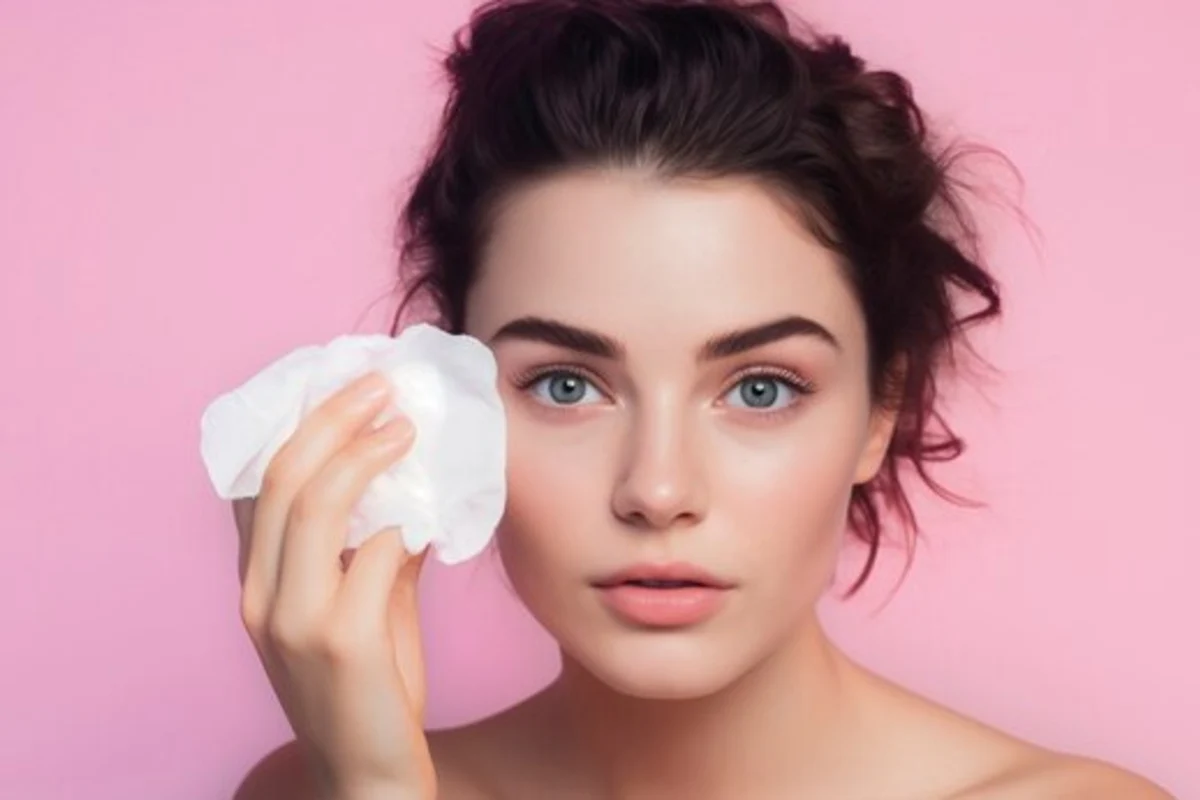Vitamin E is a powerful antioxidant that can help protect your skin from free radical damage, aging signs, and various skin issues. It is also essential for maintaining healthy skin barrier function and moisture levels. But how can you get enough vitamin E for your skin? One way is to use vitamin E capsules, which are widely available and easy to use.

In this blog post, we will explore the different ways you can use vitamin E capsules for your skin, the benefits and risks involved, and who should or should not use them. Read on to find out more.
How To Use Vitamin E Capsules For Your Skin
There are two main ways you can use vitamin E capsules for your skin:
- Take them orally as a supplement.
- Apply them topically to your skin.
Both methods have similar effects and advantages, but they may differ in terms of dosage, frequency, and suitability. Let’s look at each method in detail.
Sure, I can help you rewrite and improve this paragraph. Here is a possible version:
How Vitamin E Capsules Can Benefit Your Skin
Antioxidant Protection Vitamin E is rich in alpha-tocopherol, a potent antioxidant that shields your skin from the damage caused by free radicals (3). Many anti-aging creams combine vitamin C and vitamin E, as they work synergistically to prevent the skin from aging and sun damage (4), (5).
UV Damage Prevention Vitamin E alone cannot protect your skin from UV rays. You need to use it with products that contain vitamin C to safeguard your skin from the harmful effects of UV rays. However, vitamin E can help prevent the free radical damage that UV rays induce (6).
Elle, a blogger, shares her tip on using vitamin E to prevent UV damage: “Before I go to the beach, I like to spice up my beauty routine with a quick vitamin E sugar scrub. I use the capsules, but you can also use the pure vitamin E oil (i).”
Skin Hydration Vitamin E has tocopherols and tocotrienols that moisturize your skin and keep it hydrated and glowing. Applying vitamin E to your skin enhances its antioxidant defenses (6). This can help your skin stay healthy.
Aging Signs Reduction Aging reduces collagen production, which results in wrinkles and sagging skin. Poor diet or lifestyle can also cause dark spots and dry skin, making the skin look older. Vitamin E is a powerful antioxidant and a moisturizer. It helps diminish fine lines, wrinkles, dark spots, and dry skin (7).
Skin Brightening Aging or toxin buildup can cause uneven skin tone or dryness, making the skin look dull and lifeless. Researchers have found that applying vitamins E and C to the skin reduces the harmful free oxygen radicals that make the skin look old and dull. These vitamins may also brighten the skin (8).
Inflammation Reduction Several studies have shown the anti-inflammatory effects of vitamin E. These effects enhance the process of skin regeneration, in which the old skin cells are replaced by new ones, making your face radiant. Vitamin E also protects your skin from environmental damage (5).
Sunburn Healing Vitamin E has antioxidant properties that can help neutralize the free radicals produced by sun exposure, reducing skin inflammation and promoting healing. Applying vitamin E oil or creams to the sunburned areas can calm the skin, decrease redness, and relieve discomfort (9).
These are the benefits of vitamin E capsules. You can either take vitamin E capsules orally or apply them directly to your skin. If you want to know how to use vitamin E capsules for your face, keep reading.
Fun Fact
Vitamin E was first discovered in 1922 by Herbert McLean Evans and Katherine Scott Bishop, renowned medical researchers at UC Berkeley.
How To Use Vitamin E Capsules For Your Face
- Skin Brightening Mask Mix the oil from 2 vitamin E capsules with 2 tablespoons of organic yogurt and a few drops of lemon juice. Apply this mask on your face and wash it off after 15 minutes. Do this twice a week. This mask cleanses and tightens your skin. Yogurt has lactic acid, which moisturizes and brightens your skin by fading blemishes and dark spots (10). Lemon juice is a natural skin lightener (11). Caution: If you have sensitive skin, avoid this mask as lemon juice may irritate your skin.
- Acne Scar Treatment Apply the oil from a vitamin E capsule directly on your face or the affected area and leave it on overnight. Repeat this until the scars fade. Vitamin E has antioxidants that repair damaged skin cells and reduce blemishes (3).
- Dark Circle Remover Apply the oil from a vitamin E capsule to the area around your eyes. Massage it gently and leave it on overnight. Do this regularly for at least 2-3 weeks to see a lighter and brighter undereye area. Some people claim that vitamin E oil can help lighten dark circles and reduce puffiness. However, there is no scientific proof for this.
- Glowing Skin Mask Mix the oil from 3-4 vitamin E capsules with 2 tablespoons of papaya paste and 1 teaspoon of organic honey. Apply this mask to your face and neck and leave it on for 20-25 minutes. Wash your face. Do this three times a week. Papaya peel has papain, which lightens your skin (12). Vitamin E nourishes and repairs your skin, and honey moisturizes it.
- Hyperpigmentation Treatment Mix the oil from 2 vitamin E capsules with 1 tablespoon of extra virgin olive oil. Massage this mixture on your face for 10 minutes. Leave it on for at least an hour or overnight. Do this three times a week. Vitamin E heals damaged skin cells, and olive oil hydrates your skin and stimulates cell renewal (13). This may help reduce dark spots and pigmentation.
- Dry Skin Remedy Mix the oil from 2 vitamin E capsules with 1 teaspoon of organic honey and 2 tablespoons of milk. Apply this on your face and wait for 20 minutes before washing it off. Do this three times a week. Milk has lactic acid, which lightens and nourishes your skin (9). Honey retains moisture (14). Vitamin E capsules for the face help restore and nourish your skin cells.
- Smooth Skin Serum Mix the oil from a vitamin E capsule with 2 tablespoons of rose water and a teaspoon of glycerin. Apply this on your face and leave it on overnight. Follow this remedy 2-3 times a week. Glycerin is a humectant that draws moisture and makes your skin soft and smooth (15). Vitamin E keeps your skin nourished and refreshed.
- Skin Allergy Soother Mix the oil from 2 vitamin E capsules with extra virgin coconut oil and 2 drops each of tea tree and lavender oils. Massage this on your face and wash it off after 30-60 minutes with warm water. You can do this twice a day. Vitamin E and lavender essential oils have anti-inflammatory effects (16). Tea tree and coconut oils have antimicrobial effects and speed up healing (17), (18).
- Itchy Skin Reliever Mix the oil from a vitamin E capsule with extra virgin coconut oil and massage this on your face. Do this every day. Coconut oil can help soothe itching as it hydrates and nourishes your skin (18). Vitamin E heals your skin and reduces inflammation.
- Dark Spot Corrector Mix the oil from 2 vitamin E capsules with a tablespoon of fresh aloe vera gel and massage this into your skin. Aloe vera gel has aloin, which lightens your skin (19). Vitamin E repairs your skin and fades dark spots.
How Much Vitamin E Do You Need?
The recommended daily allowance (RDA) for vitamin E depends on your age, sex, and life stage. For adults, including pregnant and breastfeeding women, the RDA is 15 milligrams (22.4 IU) of vitamin E per day. You can usually get enough vitamin E from a balanced diet that includes foods like nuts, seeds, spinach, and broccoli. However, some people may need vitamin E supplements for certain health conditions or deficiencies. Before taking any supplements, you should always consult a healthcare provider.
Vitamin E and vitamin E oil (which is derived from vitamin E) have many benefits for your skin, but they also have some risks that you should be aware of before using them. Here are some potential side effects of vitamin E capsules.
Vitamin E Capsule Risks
- They may cause allergic reactions.
- They may cause contact dermatitis (20).
- To be on the safe side, do a patch test before using them. Apply a small amount of vitamin E capsule to your jaw area and wait for 24 hours. Check for any signs of allergy. Remember, vitamin E capsules may not suit everyone. Keep reading to find out who should avoid them.
Who Should Avoid Vitamin E Capsules
- Do not apply vitamin E capsules if you have eczema or psoriasis (21).
- Do not take vitamin E supplements if you have bleeding disorders (22).
- Do not use vitamin E capsules if you are allergic to them. Infographic: Top 5 Vitamin E Face Packs Vitamin E oil is rich in antioxidants that fight aging and repair damaged skin cells. It is a popular ingredient in skincare products because it can brighten, moisturize, and smooth your skin. It can also help with skin whitening.

Vitamin E is a powerful antioxidant that can make your skin beautiful and healthy. You can apply vitamin E oil to your face or take supplements (only if you have a deficiency). It can improve your skin texture, reduce signs of aging, and keep your skin hydrated and soft. Follow the tips in this article to use vitamin E capsules for your face. However, if you want to take vitamin E supplements, you should talk to a doctor first. Too much vitamin E can be harmful to your body.








